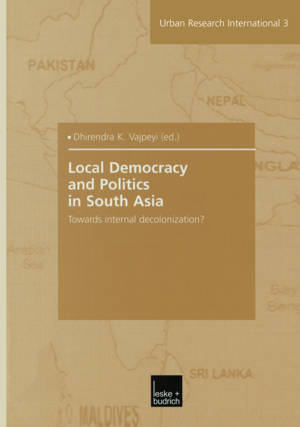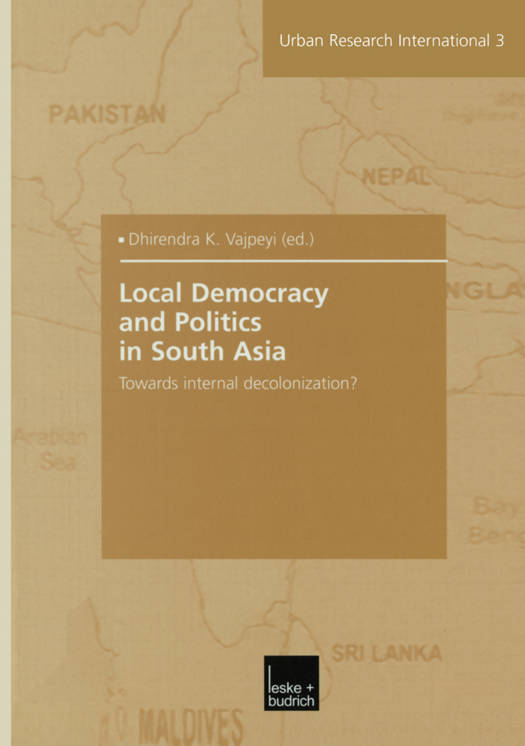
- Afhalen na 1 uur in een winkel met voorraad
- Gratis thuislevering in België vanaf € 30
- Ruim aanbod met 7 miljoen producten
- Afhalen na 1 uur in een winkel met voorraad
- Gratis thuislevering in België vanaf € 30
- Ruim aanbod met 7 miljoen producten
Zoeken
Local Democracy and Politics in South Asia
Towards Internal Decolonization?
€ 54,45
+ 108 punten
Omschrijving
I Local Government in the Third World: Legacies of Colonialism To generalize about the nature of politics and political institutions in the vast and complex area as the Third World is an exercise in futility. The countries of the area are different from one another in their levels of social evolution, political development, economic achievement, and technological change; however, most of them have experienced colonialism in the past with varying degrees of exploitation and changes introduced by the colonialists. After gaining independence these countries are attempting to decolonize them selves by establishing new institutions and political systems at national and sub-national levels. The degree of their success has been uneven due to sev eral factors such as the quality of their political elites and their commitment to bring modernization, their economic resources, and last but not least, the degree to which the process of democratization, at all levels of society has been introduced, and internalized by the people themselves. With a few ex ceptions the ghost of colonialism keeps haunting these societies. Due to lack of political-administrative experience, a participatory culture, and weak infra structure the colonial centralized-bureaucratic model of administration has not been replaced. This is more obvious and prevalent in the inter governmental relationships between national, state/province, and local (dis trict) governments. Under the imperial administrative system most of the in digenous institutions of local government and governance such as Panchayats in India were either abolished or became irrelevant and ineffective."
Specificaties
Betrokkenen
- Uitgeverij:
Inhoud
- Aantal bladzijden:
- 158
- Taal:
- Duits
- Reeks:
- Reeksnummer:
- nr. 3
Eigenschappen
- Productcode (EAN):
- 9783810039446
- Verschijningsdatum:
- 31/10/2003
- Uitvoering:
- Paperback
- Formaat:
- Trade paperback (VS)
- Afmetingen:
- 148 mm x 210 mm
- Gewicht:
- 199 g

Alleen bij Standaard Boekhandel
+ 108 punten op je klantenkaart van Standaard Boekhandel
Beoordelingen
We publiceren alleen reviews die voldoen aan de voorwaarden voor reviews. Bekijk onze voorwaarden voor reviews.










